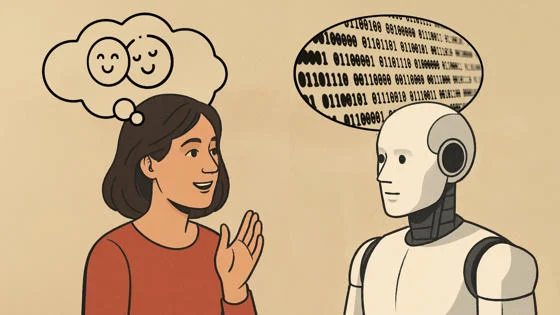Being human in digital cities

Contents
By 2050, 70 per cent of the global population will live in urban areas. As we grapple with changing demands placed on our cities, the digitisation of almost all areas of our lives promises greener, more equitable and more connected urban living. In her latest book, Being Human in Digital Cities, Professor Myria Georgiou, Department of Media and Communications at LSE, challenges the faith we place in technology to resolve complex urban problems.
Professor Georgiou summarises the book around a key theme: "Digital technologies order cities, and with them, human life. Our smartphones and internet connectivity, for example, have changed how we navigate the city for work, leisure, and even love. But the technologies we have come to rely on are infrastructures with considerable political, ethical and environmental implications – it is easy to forget that.
"The book is a call to consider the ways in which digital change comes about, and the consequences for the people of the city. Do we see more opportunities for democratic and sustainable urban futures, or for surveilled and divided cities? The response, of course, is not straightforward."
Who is shaping our visions of digital cities?
According to Professor Georgiou, powerful actors in cities, such as Big Tech, influential corporations and policymakers, often promote digitisation as the pathway to sustainable, humane and democratic cities.
"I call this approach to digitisation popular humanism," explains Professor Georgiou. "Popular humanism is based on the narrative that technology is central to the advancement of the public good and residents’ rights. We are often told that investment in digital infrastructures is for the benefit of citizens, of the city, of our common future. Rarely, however, do we hear about the implications of such investment for individuals’ rights to privacy or for the profit-making use of citizens’ data by private companies, for example."
Professor Georgiou cites the Google-led smart Waterfront Toronto project in Canada as a case study of the contradictions within popular humanism.
Initially hailed as a model for 21st-century urban life, promising, for example, weather management systems, driverless cars and sensors to monitor pollution levels, the project was dogged by issues around taxation, data protection and transparency, which was followed finally by the withdrawal of Google subsidiary, Sidewalk Labs, from the venture.
Problematically, as Professor Georgiou explains, "the promises of popular humanism often obscure questions of accountability and responsibility."
What unites this work is the emphasis on rights and relationality – the fact that we always exist in relation to others, and that our freedom depends on others’ freedom.
How do citizens respond to urban digitisation?
In contrast to the popular humanist visions of digital cities, which seem to prioritise order and profit, Professor Georgiou sees another approach – demotic humanism.
"Demotic humanism refers to the regular use of digital technologies by city dwellers to create identities and communities – how they attempt to make the digital city humane and democratic in everyday life."
In work that has taken her to cities across the world, Professor Georgiou finds a compelling example of demotic humanism in Havana, Cuba.
"I observed groups of Havana’s residents regularly standing outside four- and five-star hotel gates and found that they were there to connect to the hotel Wi-Fi networks. With this daily practice, the residents of Havana claimed their right to digital connectivity and resources, otherwise reserved for the luxury-hotel guests."
She also refers to community-building projects during the pandemic: "During the COVID-19 pandemic, inhabitants of many British cities, including London, established mutual aid groups as an attempt to share care and solidarity. Strangers living in geographical proximity used social media to create community, especially supporting the most vulnerable at times of acute isolation."
While demotic humanism demonstrates how citizens use technologies to support and advance human values in their everyday practice, Professor Georgiou notes that these meaningful but small acts do little to make lasting change to the management of digital landscapes, as these technologies we ordinarily use can in fact reproduce exclusions, sustaining conditions of racial, class and gender dehumanisation.
If, for example, the inhabitants of Havana manage to connect to Wi-Fi through their own initiatives, where is the impetus to rebalance this disparity systemically?
"What demotic humanism makes most apparent," Professor Georgiou argues, "is the need to challenge the digital order at its core."
Can we take control of urban digitisation?
To truly challenge the inequalities and divisions embedded in the digital order of cities across the world, Professor Georgiou calls for a critical humanism. Critical humanism refers to a conscious and collective approach to digitisation, which allows urban inhabitants to benefit from technology, but also sometimes to resist technology, especially when data and AI are used to limit the right to the city, for example through predictive policing and data profiling that restricts access to work and housing for those deemed as "risky populations".
Professor Georgiou explains the background to this approach: "My conception of critical humanism stems from sources that recognise diasporic, black anticolonial, and feminist scholarship and social movements.
"What unites this work is the emphasis on rights and relationality – the fact that we always exist in relation to others, and that our freedom depends on others’ freedom. Against popular humanism’s promise that technology unquestionably resolves urban inequalities and delivers better cities, critical humanism recognises the complex and often contradictory role of digital change."
Being Human in Digital Cities is a contribution to the formation of this critical humanism, and Professor Georgiou is clear in the way forward: "From urban movements to policy initiatives such as the transnational Cities Coalition for Digital Rights, we see critical humanism taking shape. The demand for digital urban rights and accountable decision-making on technological change is now on the table."
Professor Myria Georgiou was speaking to Molly Rhead, Media Relations Officer at LSE.
Download this article as a print-optimised PDF [245KB].




